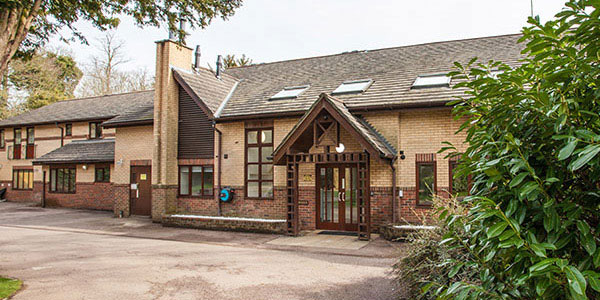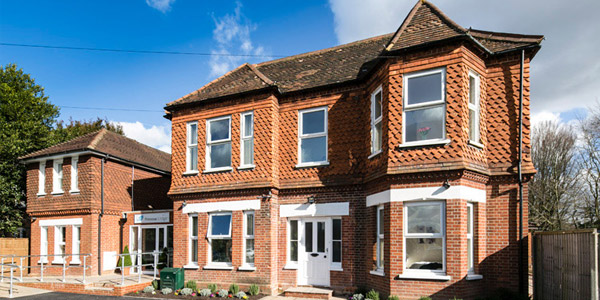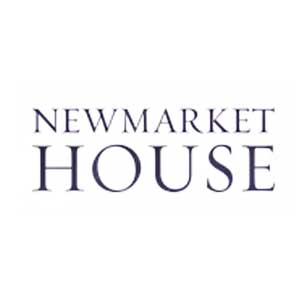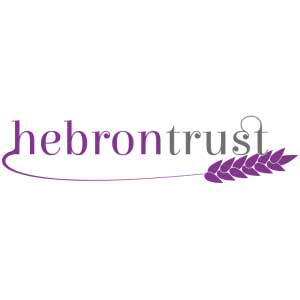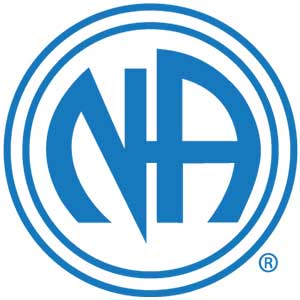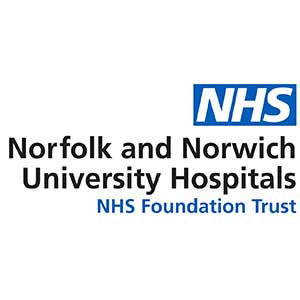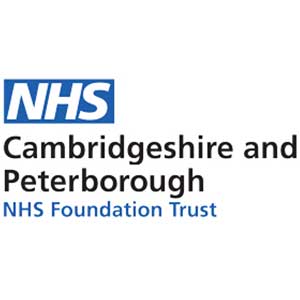Alcohol & Drug Rehab in Norwich
Norwich may be considered one of the more rustic cities in the country, maintaining close ties to the agriculture of the surrounding region, but that does not render it immune to the destruction caused by addiction to alcohol, illegal drugs and/or prescription medicines; sadly, nowhere in the UK is thus immune, and Norwich residents will be very aware of the city’s growing addiction crisis.
If you live in or near Norwich and are suffering from addiction, you must not allow itself to give in to despair: hope really is closer than you may think – as is a life free of substance abuse. Read on to find out how rehab can turn your life around and set you back on a path towards happiness and success.
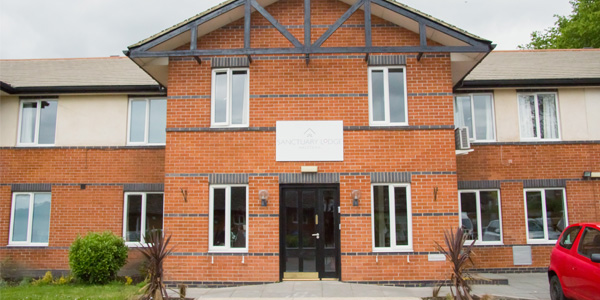
Sanctuary Lodge is a state of the art detox and rehabilitation facility, se…
- Private
- Holistic Treatment
- Onsite gym
- Residential
Featured Rehabs
Liberty House Clinic is a fully furbished detox and rehabilitation facility…
Banbury Lodge is a private UKAT rehab facility based in Banbury, Oxfordshir…
At Primrose Lodge we genuinely care that our patients make a full recovery …
Finding Treatment near Norwich
-
- Eating Disorder
- Residential
- Family Workshops
- Holistic Treatment
- Load More
-
- Eating Disorder
- Residential
- Family Workshops
- Holistic Treatment
-
- 12 Step
- Group Setting
- Free
- Outpatient
-
- 12 Step
- Group Setting
- Free
- Outpatient
-
- 12 Step
- Group Setting
- Free
- Outpatient
-
Norfolk Community Eating Disorder Service
The Springs
Aslake Close
Sprowston
Norwich
Norfolk
NR7 8ET0 review- Eating Disorder
- Group Setting
- Free
- Outpatient
- Load More
Drug & Alcohol Rehab Services in Norfolk
- A
- B
- C
- D
- E
- F
- G
- H
- I
- J
- K
- L
- M
- N
- O
- P
- Q
- R
- S
- T
- U
- V
- W
- X
- Y
- Z
What Is Rehab?

Residential rehabilitation – or “rehab” – is the name given both to treatment provided to an addict at a dedicated facility, and to the facility itself. Rehab offers a compelling combination of detoxification (“detox”) and therapy, addressing both the immediate pressures of physical dependency and the longer-term challenges of psychological addiction.
This combination – delivered in one facility in a peaceful, secure, pleasant and confidential setting – means rehab is widely considered to be the most effective approach to the treatment of addiction in terms of its ability to provide a platform for permanent recovery. Indeed, so successful has the model proven that in mainstream culture “rehab” has become more or less synonymous with addiction treatment.
How Can I Get Someone into Rehab?
It is imperative to get an addict help as soon as they are prepared to request it: time is absolutely of the essence because addiction can prove fatal at any time, as a result either of overdose or of the type of accident or violent act in which substance abuse is so often a factor. While it is a truism that an addict is only ready for treatment when they are able to admit to their addiction, it is also true that the longer they struggle with that addiction the more likely it is to end in their death or that of another.
With this in mind, the lengthy waiting times associated with NHS services – however high the quality of those services may be – become a serious issue. If you live in or near Norwich and are struggling with addiction, do not waste any time: speak to an addiction specialist today on 0800 024 1455 to discuss the potentially life-changing – and life-saving – private options available to you.
Advantages of Private Rehab
There are many advantages to rehab – perhaps too many, indeed, to list here, though some of the most important may be outlined briefly. As noted previously, rehab provides a peaceful, secluded, secure and confidential setting in which patients can concentrate fully upon their treatment and recovery, well away from the environment of daily life in which they have succumbed to substance abuse and eventually to addiction.
The first phase of rehab, following admission and assessment, is detoxification (“detox”) during which a patient is likely to go through withdrawal. Experiencing withdrawal without medical assistance is extremely dangerous; in rehab, very experienced medical professionals will be on hand 24/7 to ensure that this process is undergone a safely as possible and with the maximum degree of comfort (which may involve the provision of appropriate medication).
Once a patient’s system has been cleansed of substances of abuse, they are able to proceed to a therapy phase during which a variety of therapy methods and models may be provided – in both group and one-to-one settings – aimed at revealing and addressing the root causes of a patient’s addiction, and equipping them with appropriate defence mechanisms against relapse.
Following a stay in a quality rehab – which will also see patients provided with bespoke dietary and fitness plans along with a broad range of other facilities – a recovering addict will benefit from a year’s free aftercare, on the basis that recovery is not complete simply upon leaving rehab, but is an ongoing process requiring constant dedication.
What Does Rehab Cost in Norwich?
The cost of private rehab in or near Norwich can vary significantly by treatment programme, and depending on which of a variety of optional extras are selected. As a rough guide, standard costs range from between £5,500 and £11,000 per month, though the cheapest rehab treatment can start from as little as £834 per week. For more details, call 0800 804 4755.
NHS Addiction Treatment Options near Norwich
You may feel that private rehab is not an option for you at present – possibly for reasons relating to cost, or perhaps because you do feel that you are unable to spend the required time away from your family and your job. If this is the case, do not despair: there are a host of NHS and charity resources which can be found in Norwich and across Norfolk and which can help you tackle your addiction. You should consult your GP about which of these resources may be available to you.
Advantages of NHS Treatment
The most immediately obvious advantage of taking the NHS option for addiction treatment is that these services are free at the point of use, while as mentioned above private rehab comes at a cost which can discourage some addicts from seeking treatment (though when placed against the potential costs – human, financial and other – of not giving help this expense may suddenly feel like an extremely valuable investment).
The NHS also has a geographical advantage over many private providers since it operates across the country, while many good rehab facilities are some distance from Norwich (though others, of course, are very close). Furthermore, the NHS generally offers a high standard of service, though it must be noted that this does vary from one trust to the next.
Addiction Support Groups
A number of organisations exist across the country to provide assistance to recovering addicts, and some of these operate a support group model. Support groups are groups of individuals who are themselves recovering addicts – some only recently free from addiction, while others may have been clean for many years – and who come together at regular meetings to give and take mutual support: sharing their stories of addiction, giving advice on how to resist relapse, showing solidarity and sympathy when group members are struggling, and providing the simple companionship which can mean so much in times of difficulty and loneliness.
Support group attendees can come from all walks of life, brought together by their shared experience of addiction and recovery; typically, attendance at support groups is free and the only qualification for participation is a commitment to leading a life free of substance abuse.
The most famous support group organisation, and the one on which most others are modelled, is Alcoholics Anonymous (AA) which was founded in 1935 and runs on a 12-step programme of personal and spiritual development, with one of the steps being a recognition that a higher power – such as God – can assist with an alcoholic’s recovery. Narcotics Anonymous (NA), founded in 1953 and based directly upon the AA model, is the second-largest support group organisation worldwide and caters to recovering drug addicts specifically.
In a similar vein, but supporting those recovering from addictions to specific substances, are Cocaine Anonymous (CA), Heroin Anonymous (HA), Marijuana Anonymous (MA) and Crystal Meth Anonymous (CMA), all of which operate 12-step programmes. There are also support groups such as Al-Anon and Nar-Anon assisting the families and friends of addicts which typically hold meetings alongside those for the addicts themselves.
Support groups typically meet weekly, though each local chapter is managed independently and meeting times and venues are subject to change. To find information on meetings in or near Norwich, see the relevant websites: Alcoholics Anonymous; Narcotics Anonymous; Cocaine Anonymous; Heroin Anonymous; Marijuana Anonymous; Crystal Meth Anonymous.
Types of Counselling

A form of ongoing assistance during recovery which is often especially beneficial for people with extremely busy schedules is individual counselling. Private addiction counsellors operate very much like regular psychotherapists (though with an obvious emphasis on addressing the causes and consequences of addiction) and offer a broad variety of therapy models and different approaches to treatment – some extremely niche and alternative.
Typically, private counsellors can be seen by appointment, usually on a weekly basis but with a great degree of flexibility governing the relationship. Fees are usually charged per appointment; some councillors are available on an emergency basis although most limit themselves to pre-agreed working hours.
Private addiction counsellors are often sought out by recovering addicts who have gone through full treatment programmes at rehab and who desire ongoing professional assistance at this phase of their recovery, as well as by professionals at the other end of the journey who have not yet been to rehab but who wish to try to manage their addictions prior to taking that step.
How to get to Sanctuary Lodge from Norwich
Sanctuary Lodge is a state-of-the-art, 24-bedroom detox and rehabilitation facility set in a tranquil neighbourhood in the pretty market town of Halstead, Essex. Sanctuary Lodge’s high-quality facilities and highly experienced medical and support staff create the ideal environment in which to address the key questions at the heart of recovery from addiction, and to embrace its fully comprehensive holistic rehabilitation programme.
To get to Halstead from Norwich, take the A147 as far as the A11. Follow the A11 to the A1075/Norwich Road, then take in turn the A1066, Castle Street, Castle Lane, Old Market Street, Ford Street, Nuns Bridges Road and finally the Bury Road/A134. Keep on the A134 as far as the A131, then take that road directly into Halstead.



